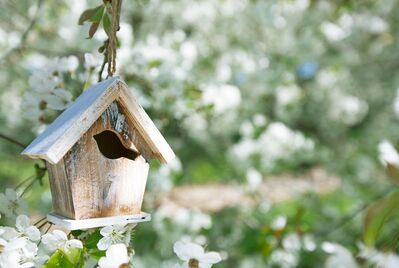5 key benefits of mid-tenancy property inspections

Property inspections play a crucial role in maintaining a positive, long-lasting relationship between landlords and tenants. When conducted regularly and taken seriously, they help ensure the property remains in good condition, fostering trust and satisfaction on both sides.
In this blog, we’ll explore five key reasons why mid-tenancy property inspections are essential and beneficial for both landlords and tenants.
1. Raise issues
Inspections are a good medium for tenants to flag up outstanding issues that might not be urgent but are worth addressing. This feedback gives landlords the opportunity to address minor problems before they escalate to major issues that are more hazardous and expensive to repair.
2. Build trust
The ideal situation for a tenancy entails trust between the landlord and the tenant, and property inspections can really help with building this. It enables the landlord to check in with the tenant and ensure that everything in their property is in good order, whilst the tenant is reassured that the landlord takes their responsibilities seriously.
3. Health and safety checks
Inspections allow landlords to confirm the safety and security of their properties, both internally and externally. They help to identify problems that may have gone unnoticed previously, such as faulty appliances or leaking pipes, ensuring that any issues are brought to light.
This ensures the landlord protects their investment and for the tenant having piece of mind that their property is a safe and secure place to live.
4. Ensures compliance with the rental agreement
Inspections warrant accountability from both parties in making sure they are each upholding the rental agreement. For instance, it means that landlords can check that the same number of tenants still live in the property, or that the property is being maintained according to the tenancy agreement. Whilst the tenants can make sure that the landlord is upholding the safety and maintenance of the property that they are meant to. This encourages both tenants and landlords to be more responsible and proactive.
5. Avoid disputes
Occasionally, there may be uncertainty regarding responsibilities in a rental property, with garden maintenance being a notable example. It is helpful to identify these matters early on and address them through conversation, rather than letting them escalate at the conclusion of the tenancy. This prevents stress for both landlords and tenants.
It is worth noting that landlords legally have to give 24 hours’ notice of an inspection, but more advanced notice is more considerate and generally the convention. Tenants can also refuse access if the timing of the inspection is not convenient for them. Therefore, another way to help avoid disputes is good communication on both ends when organising the inspections.
Mid-tenancy property inspections are vital for maintaining a successful tenancy. They allow landlords to address minor issues before they become costly, build trust with tenants, and ensure health and safety compliance. Inspections also help uphold the rental agreement and prevent disputes by fostering accountability on both sides. For all these reasons, regular, well-communicated inspections benefit both landlords and tenants by keeping the property in good condition and avoiding misunderstandings.
If you are a landlord looking for a new lettings agent, visit our landlords page to find out how we can help you get the most from your investment.






